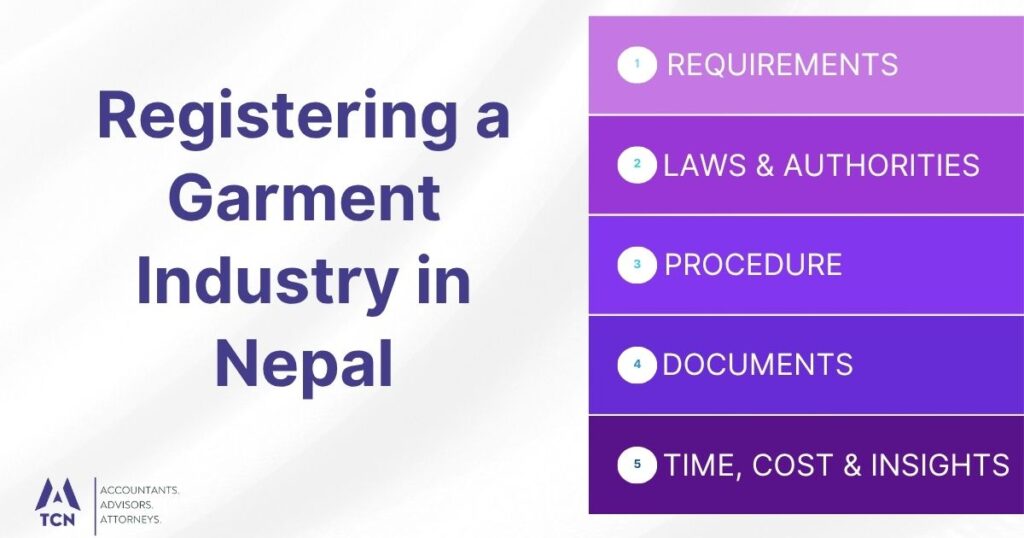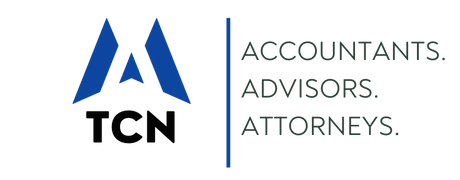Introduction to Garment Industry Registration in Nepal
Nepal’s garment industry represents a significant pillar of the country’s manufacturing sector and export economy. The textile and garment manufacturing sector contributes substantially to Nepal’s GDP and provides employment opportunities for thousands of workers across the nation. Establishing a garment industry in Nepal requires comprehensive understanding of the legal framework, regulatory requirements, and procedural obligations under Nepalese law.
The Industrial Enterprises Act, 2020 (2076 BS) serves as the primary legislation governing industrial registration in Nepal. This Act replaced the previous Industrial Enterprises Act, 1992, introducing streamlined procedures for industrial establishment and operation. The Department of Industry (DOI) acts as the central regulatory body overseeing industrial registration processes, including garment manufacturing enterprises.
Foreign investors seeking to establish garment industries in Nepal must comply with the Foreign Investment and Technology Transfer Act, 2019 (2075 BS). This legislation facilitates FDI in Nepal while ensuring compliance with national economic policies. The Act permits 100% foreign ownership in manufacturing sectors, including textile and garment production, making Nepal an attractive destination for international manufacturing investment.
The garment industry registration process involves multiple regulatory bodies, including the Department of Industry, Department of Customs, Inland Revenue Department, and local municipal authorities. Understanding these interconnected requirements ensures smooth business establishment and operational compliance.
Legal Requirements for Garment Industry Registration
Minimum Capital Requirements
The Industrial Enterprises Act, 2020 establishes specific capital thresholds for different categories of industries. For garment manufacturing enterprises, the minimum investment requirements vary based on the scale of operation and target market focus.
Small-scale garment industries require a minimum fixed capital investment of NPR 500,000, while medium-scale operations must maintain fixed capital of at least NPR 15 million. Large-scale garment manufacturing enterprises need minimum fixed capital investment exceeding NPR 100 million. These capital requirements ensure adequate financial backing for sustainable industrial operations.
Licensing and Permit Requirements
Garment industries must obtain multiple licenses and permits before commencing operations. The primary industrial license from the Department of Industry serves as the foundation for all subsequent regulatory approvals. Additionally, manufacturers must secure environmental clearance from the Department of Environment under the Environment Protection Act, 2019 (2076 BS).
The Labor Act, 2017 (2074 BS) mandates specific compliance requirements for garment industries employing workers. Enterprises must register with the Department of Labor and Employment, ensuring adherence to labor standards, workplace safety regulations, and employee welfare provisions.
Location and Zoning Compliance
Industrial establishments must comply with local zoning regulations and land use policies. The Local Government Operation Act, 2017 (2074 BS) empowers municipal authorities to regulate industrial activities within their jurisdictions. Garment industries must obtain location approval from relevant local governments before establishing manufacturing facilities.
Special Economic Zones (SEZ) offer additional incentives for garment manufacturers. The Special Economic Zone Act, 2016 (2073 BS) provides tax benefits, simplified procedures, and infrastructure support for industries operating within designated zones.
Detailed Registration Process for Garment Industry
Step 1: Preliminary Assessment and Planning
Begin the registration process by conducting comprehensive market research and feasibility analysis. Identify target markets, production capacity requirements, and investment scale to determine appropriate registration category. Consult with legal experts familiar with Nepal investment laws to ensure compliance with all regulatory requirements.
Prepare detailed project proposals including business plans, financial projections, and technical specifications. The Department of Industry requires comprehensive documentation demonstrating project viability and economic contribution. Engage qualified consultants to assist with regulatory navigation and documentation preparation.
Select appropriate business structure (private limited company, public limited company, or partnership) based on investment scale and ownership requirements. Foreign investors must establish companies under the Companies Act, 2006 (2063 BS) before applying for industrial registration.
Step 2: Company Registration and Legal Entity Formation
Register the company with the Office of Company Registrar under the Companies Act, 2006. Submit required documents including memorandum of association, articles of association, and shareholder details. Pay prescribed registration fees and obtain company registration certificate.
For foreign investment projects, simultaneously apply for foreign investment approval under the Foreign Investment and Technology Transfer Act, 2019. The Department of Industry processes both company registration and foreign investment approval through integrated procedures.
Obtain Permanent Account Number (PAN) from the Inland Revenue Department and Value Added Tax (VAT) registration if applicable. These tax registrations are mandatory for all commercial enterprises operating in Nepal.
Step 3: Industrial License Application Submission
Submit industrial license application to the Department of Industry with complete documentation. The application must include project details, investment information, employment projections, and environmental impact assessments. Pay prescribed application fees as specified in the Industrial Enterprises Act, 2020.
The Department of Industry evaluates applications based on technical feasibility, financial viability, and compliance with national industrial policies. Applications undergo technical review by expert committees before approval decisions.
Attend hearings or meetings if requested by the Department of Industry. Provide additional information or clarifications as required during the evaluation process.
Step 4: Environmental and Sectoral Clearances
Obtain environmental clearance from the Department of Environment based on project scale and potential environmental impact. Garment industries typically require Initial Environmental Examination (IEE) or Environmental Impact Assessment (EIA) depending on production capacity and location.
Secure additional sectoral approvals including fire safety clearance, building permits, and utility connections. Coordinate with relevant authorities to ensure all regulatory requirements are fulfilled before commencing operations.
Apply for export licenses if planning to export garment products. The Department of Commerce issues export licenses enabling international trade activities.
Step 5: Final Registration and Operational Permits
Receive industrial license from the Department of Industry upon successful completion of all requirements. The license specifies permitted activities, production capacity, and operational conditions that must be maintained throughout business operations.
Register with the Department of Labor and Employment for labor compliance. Obtain necessary permits for worker employment, workplace safety, and social security contributions under the Labor Act, 2017.
Complete final registrations including customs registration for import/export activities and industry association memberships for sector-specific benefits and support.
Required Documents for Registration
Corporate Documentation
The registration process requires comprehensive corporate documentation establishing legal entity status and ownership structure. Primary documents include company registration certificate, memorandum and articles of association, and shareholder agreements. Foreign investors must provide additional documentation including investment agreements and technology transfer arrangements.
Board resolutions authorizing industrial establishment and appointing authorized representatives are mandatory. These documents must be properly notarized and authenticated according to Nepalese legal requirements.
Financial Documentation
Submit detailed financial statements, bank guarantees, and investment proof demonstrating adequate capital for proposed operations. The Department of Industry requires audited financial statements for existing companies and financial projections for new ventures.
Bank statements and credit facilities documentation support financial capacity assessments. Foreign currency investment requires Nepal Rastra Bank approval and compliance with foreign exchange regulations.
Technical and Environmental Documentation
Provide comprehensive technical specifications including machinery details, production processes, and quality control measures. Environmental impact assessments and mitigation plans are mandatory for industrial operations potentially affecting environmental quality.
Land ownership documents or lease agreements establishing legal rights to industrial premises are essential. Building plans and construction permits ensure compliance with local building codes and safety regulations.
Personnel and Management Documentation
Submit management team profiles, technical expertise documentation, and organizational structure details. The Department of Industry evaluates management capability and technical competence during application review.
Employment plans and labor compliance strategies demonstrate adherence to labor law requirements. Training programs and skill development initiatives support workforce development objectives.
Time Frame and Associated Costs
Registration Timeline
The complete garment industry registration process typically requires 45-90 days from initial application submission to final license issuance. This timeline assumes complete documentation and prompt responses to regulatory queries. Complex projects or those requiring extensive environmental assessments may require additional time.
Company registration generally takes 7-15 days, while industrial license processing requires 30-45 days. Environmental clearances add 15-30 days depending on assessment complexity and project scale.
Cost Structure
Registration costs vary significantly based on investment scale and business complexity. Basic registration fees for small-scale garment industries range from NPR 50,000 to NPR 200,000. Medium and large-scale operations incur proportionally higher fees based on capital investment levels.
Professional consultation fees for legal and technical assistance typically range from NPR 100,000 to NPR 500,000 depending on project complexity. These costs ensure proper compliance and reduce regulatory risks.
Additional costs include environmental assessment fees, technical evaluation charges, and various permit fees from different regulatory bodies. Budget approximately 2-3% of total project cost for complete registration and compliance expenses.
Post-Registration Compliance Obligations
Operational Compliance Requirements
Registered garment industries must maintain continuous compliance with operational conditions specified in industrial licenses. Regular reporting to the Department of Industry includes production statistics, employment data, and financial performance indicators. Annual compliance certificates ensure ongoing adherence to regulatory requirements.
The Labor Act, 2017 mandates specific workplace standards including safety measures, worker welfare provisions, and social security contributions. Regular inspections by labor authorities ensure compliance with employment regulations and worker protection standards.
Tax and Financial Obligations
Garment industries must comply with comprehensive tax obligations including corporate income tax, value-added tax, and customs duties on imported materials. The Income Tax Act, 2002 (2058 BS) governs corporate taxation while the Value Added Tax Act, 1996 (2052 BS) regulates VAT compliance.
Regular tax filing and payment obligations require maintaining proper accounting records and engaging qualified tax professionals. Export-oriented industries may qualify for tax incentives under various government policies promoting export growth.
Environmental and Safety Compliance
Ongoing environmental monitoring and reporting ensure compliance with environmental clearance conditions. The Environment Protection Act, 2019 requires regular environmental audits and impact assessments for industrial operations.
Workplace safety compliance under the Labor Act includes regular safety training, equipment maintenance, and accident reporting. Fire safety measures and emergency preparedness protocols protect workers and industrial assets.
Renewal and Amendment Procedures
Industrial licenses require periodic renewal based on terms specified in original approvals. License renewal applications must demonstrate continued compliance with all regulatory requirements and operational conditions.
Business expansion or operational changes require license amendments through formal application processes. The Department of Industry evaluates amendment requests based on regulatory compliance and policy alignment.
Frequently Asked Questions
What is the minimum capital requirement for registering a garment industry in Nepal?
Small-scale garment industries require minimum fixed capital of NPR 500,000, medium-scale operations need NPR 15 million, while large-scale enterprises require over NPR 100 million investment.
How long does the complete registration process take for garment industries?
The complete registration process typically takes 45-90 days from application submission to final license issuance, assuming complete documentation and prompt regulatory responses throughout.
Where should garment industry registration applications be submitted in Nepal?
Applications must be submitted to the Department of Industry, Government of Nepal, which serves as the primary regulatory body for all industrial registration processes.
What are the essential documents required for garment industry registration?
Essential documents include company registration certificate, investment proof, environmental clearance, land ownership documents, technical specifications, management profiles, and various regulatory compliance certificates.
What are the total costs involved in registering a garment industry?
Total registration costs range from NPR 200,000 to NPR 700,000 including government fees, professional consultation, environmental assessments, and various permits depending on scale.


